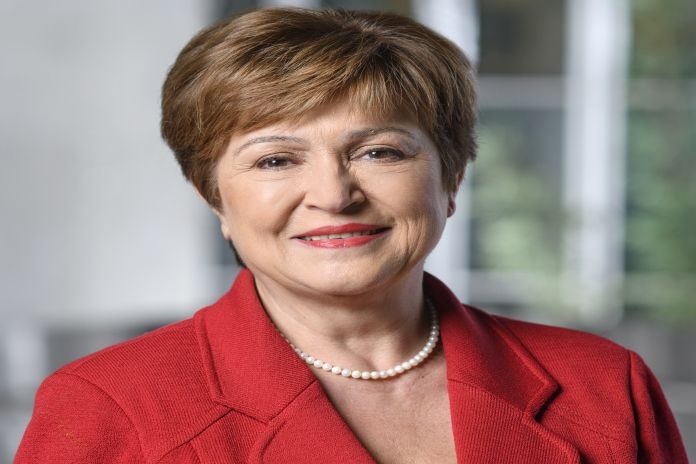WASHINGTON, USA – The great Arab scholar Ibn Khaldun laid out how social cohesion can move people forward. He can inspire us today as we work for an inclusive, job-rich recovery across the Arab countries and the world.
So what is the outlook now? The world continues to face the worst recession since the Great Depression, with global growth expected at negative 4.4 percent in 2020. For next year, we project a partial and uneven recovery, with growth expected at 5.2 percent.
For the Arab world, we project a 5 percent GDP contraction in 2020 followed by a return to growth in 2021 at 3.2 percent. The region does not reach 2019-level GDP until the end of 2022, and losses compared to pre-pandemic projections are more than $900 billion through 2025. The combined impact of sluggish oil demand, as well as hampered trade, tourism, and of course, lockdowns all contribute to this forecast.
So for the region and the world, this will be a long ascent—difficult, uncertain, and prone to setbacks. Incoming data point to slowing momentum where the pandemic is resurging. But there is significant progress on vaccines, and we continue to call for universal access for all nations.
We can also build on extraordinary fiscal and monetary policy measures that put a floor under the global economy.
Continued action is important, because medium term economic scarring from the crisis could be deep. The region’s large exposure in the hard-hit services sector, strained corporate balance sheets, low ability to work from home, and dependence on remittances could all hurt the recovery. Interruptions to education take away from students’ future productivity.
How can policymakers fight back? Again, we can learn from history. Building on Arab traditions of solidarity, Ibn Khaldun was one of the first people to write in detail about the role of government in the economy. That spirit shows in the swift and strong policy actions already taken by Arab countries to support your people and dampen the immediate effects of the crisis:
Fiscal packages and liquidity support have protected incomes and livelihoods, and the financial sector. Innovative measures included tax deferrals and other administrative measures, cash transfers, and subsidies to small and medium-sized enterprises.
- Households have benefitted too. Morocco, for example, implemented innovative technological solutions, including mobile payments, to reach informal sector workers.
- Egypt rapidly expanded a cash payments program and increased financial inclusion through digital mobile money services.
- And Tunisia has scaled up benefits, widened coverage, and improved its ability to target aid at those most in need.
The big question is: How do we pay for these and other vital lifeline programs? How do we sustain them?
First, raise more revenue over the medium term. Increasing tax compliance, making taxes more progressive, and supporting revenue administration will help.
For example, Egypt, Morocco, Jordan, and Sudan have strengthened revenue administration to improve compliance and mobilize revenues.
Next, make spending more efficient. This includes gradually removing fuel subsidies as multiple GCC members are doing. And rationalizing public wage bills and, to the extent possible, further reorienting spending within existing budgets and reducing non-priority spending.
The Fund is here to help. We encourage countries with unsustainable debt burdens to tackle them early and decisively. Under Saudi leadership, the G20 just agreed to a Common Framework for Debt Treatments Beyond the Debt Service Suspension Initiative. This was an important step, and we will continue to encourage lenders and donors to support low-income countries and fragile states.
The Fund has sharpened its focus on helping members improve social safety nets and make them fiscally sustainable, and other long-term policies that support inclusive growth.
During the pandemic, we have had 145 technical assistance missions to Arab countries, including through our Technical Assistance Center in Beirut and our Center for Economics and Finance in Kuwait.
We have provided $14 billion in support to seven Arab countries during the crisis—an increase of 47 percent in the Fund’s lending to the region. We have also provided $42 million in debt service relief to three Arab countries through the Catastrophe Containment and Relief Trust.
And we are ready to do more.
To close, let me return to where I started from — to the work of Ibn Khaldun. He was not a thinker who looked out at the world from an ivory tower. Rather, he served in multiple government functions, applying his extraordinary insights to the economic and social challenges of his time.
It is our responsibility today to make sure our ideas translate into policies that improve the lives of people.





